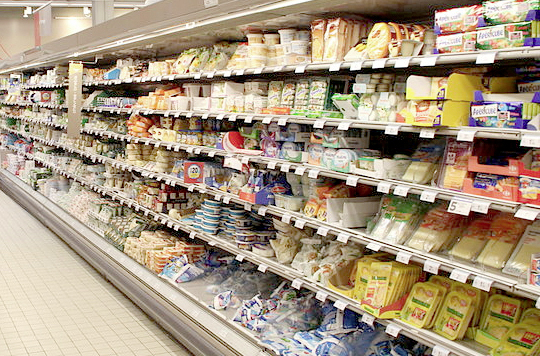
Price volatility for food and drink raw materials mean supermarkets and their suppliers 'must work closer together' according to professional services firm PricewaterhouseCoopers.
'Long term volatility and short term price shocks in the food and drink supply chain are set to continue,' said Stephen Oldfield, agri-food partner at PwC.
'Dealing with volatility in availability and price requires urgent and business-wide commodity risk management led by the boards of UK food and drink businesses, and a collaborative approach with their major customers to collectively manage the effects of price movement.'
According to a survey undertaken at a recent client forum around volatility in commodity prices, only a fifth of those attending said they had taken significant action, leaving the remainder not having really tackled the issue.
'Companies in the middle of the supply chain need to address what they are doing to manage their exposure to commodity price and availability risk and be able to explain it to their supermarket customers.'
'Together, they then need to reach an economically sustainable solution to the way they do business with each other and not deal with it simply at a short term transactional level. In particular, in a period of short term rising raw material prices, failure to recognise these issues could cause suppliers significant economic hardship.'
At the other end of the supply chain, supermarkets are dealing with consumer pressure for quality and availability at a fair price to ensure they maintain or grow their grocery market share in the new normal of, what is at best, a static market.
With product availability, price and quality provided as givens, those polled at the forum voted customer insight (53%) as the most important requirement for retailers and their suppliers to succeed in the new normal environment, followed by innovation (27%) then convenience (16%).
Christine Cross, chief retail and consumer adviser, said: 'We are seeing a power shift in the retailer/food processor relationship with price increases beginning to be passed on to the retailers.'
'The volatility in the market has enabled manufacturers to justify price increases, recently seen in the UK with wheat. However the pressure on retailers to maintain extreme value to keep market share is unrelenting, and in this, the 'golden quarter', pricing pressure is particularly keen.
Increasingly, retailers as well as manufacturers are having to invest time and resource in understanding and managing volatile commodity prices in order to minimise risk in their businesses.
'The ability to price products correctly and maximise promotional effectiveness, offer genuine insights to the retailers, and knowing what’s happening in the commodity market is key in the current environment for processors. The ability to respond to consumers' needs for product innovation and convenience also differentiates the winners in this market.'
